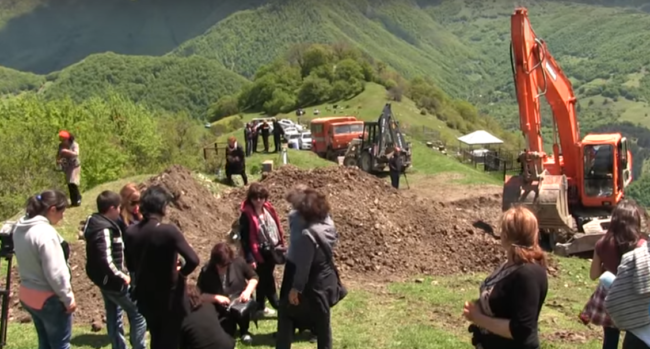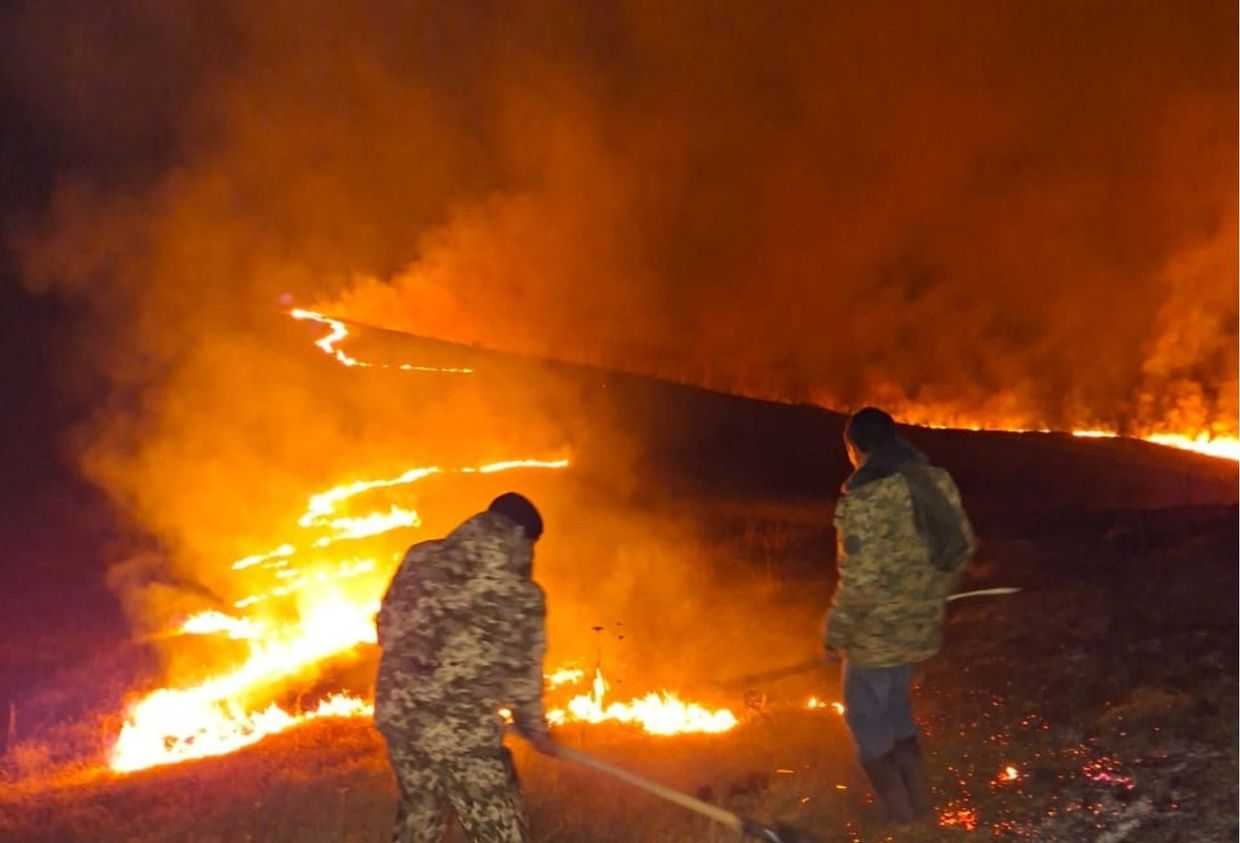

 Residents of the village of Muguda, in Georgia’s Mtskheta–Mtianeti Region (historical Mtiuleti), staged a protest on 13 May demanding that construction of power lines passing through the village cease.
Residents of the village of Muguda, in Georgia’s Mtskheta–Mtianeti Region (historical Mtiuleti), staged a protest on 13 May demanding that construction of power lines passing through the village cease.
The construction is part of the 500 km Ksani–Stepantsminda high-voltage transmission line, which will serve the planned Dariali and Larsi hydropower plants and connect with Russia’s electricity grid.
The authorities responded to the protest by mobilising riot police. Despite the villagers’ opposition, construction works continued.
Residents from Muguda complain that one of the planned electricity pylons will be located on an old cemetery, and close to a functioning one, and that this could result in the destruction of old graves.
Energy Minister Kakha Kaladze said during a press conference that non-governmental organisations (NGOs) are to blame for the protests, and accused them of creating ‘disorder’.
‘NGOs are trying to rally and mislead the local population for their own purposes. This is immoral and graceless behaviour from these destructive forces’, Kaladze said.
The head of Georgia’s Orthodox Church, Patriarch Ilia II, weighed in on the protests, noting that the government had taken measures to encourage people to return to living in mountainous areas, and that they should continue to support this.
‘They say that the processes are [well] managed. Even so, everything must be done to find a way out. This may involve additional financial expenses. But it’s better to spend some money, and where possible to meet halfway and [make] people feel supported’, the Patriarch’s statement read.
According to him, development of tourism, which could be affected by construction of power lines near the village, should be a priority, alongside improvements to the electrical grid.
During a specially held briefing, Deputy Minister of Energy Ilia Eloshvili also accused ‘destructive forces’ of spreading false information to the local population.
‘I want to once again state that no decision and no steps undertaken by our government are directed at the detriment of even one person — but for the development of the country and the economy’, Eloshvili said.
Similar protests demanding changes in the route of the power line were previously held in Sno valley in January and Tbilisi earlier in May. In Pasanauri, six local residents were arrested on 10 May while attempting to block construction of power lines through the village of Khundo.
The plan to construct the high voltage line connecting Georgia and Russia’s electricity grids has faced opposition from Georgian environmental activists. Local environmental group Green Alternative has demanded that the construction permit for the project be revoked.
Construction of the project is scheduled to be completed in May 2017.









